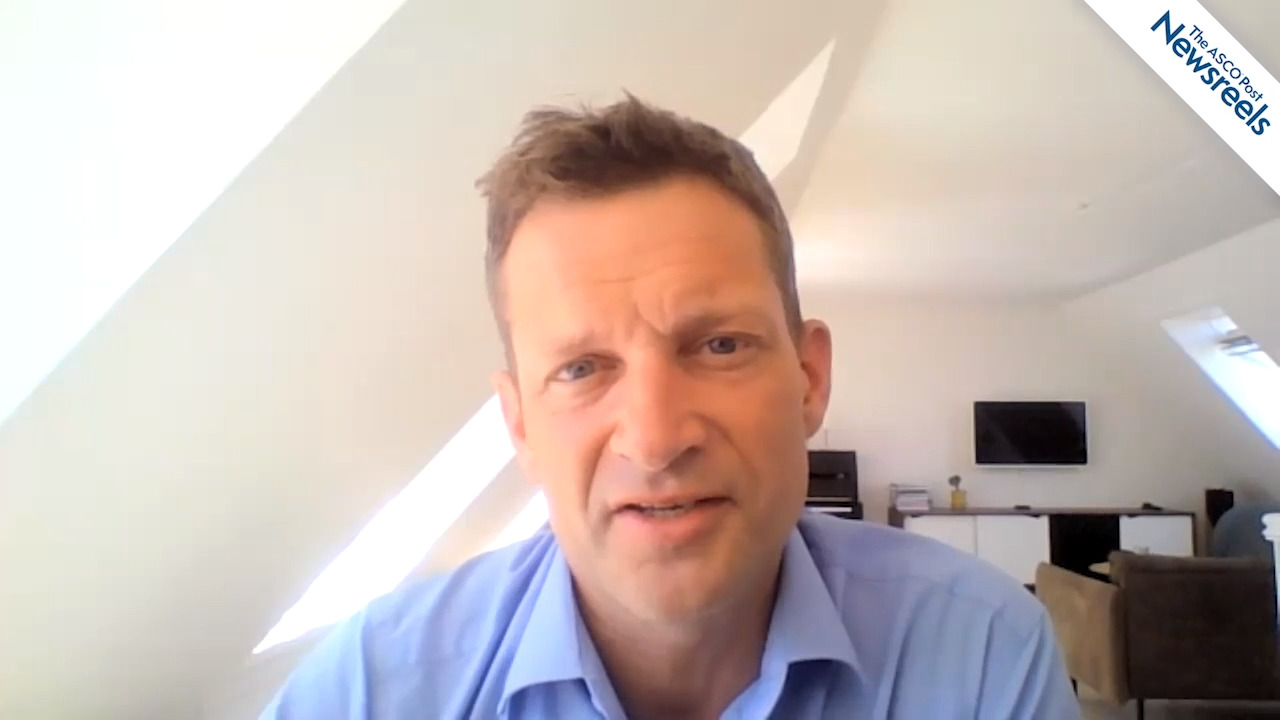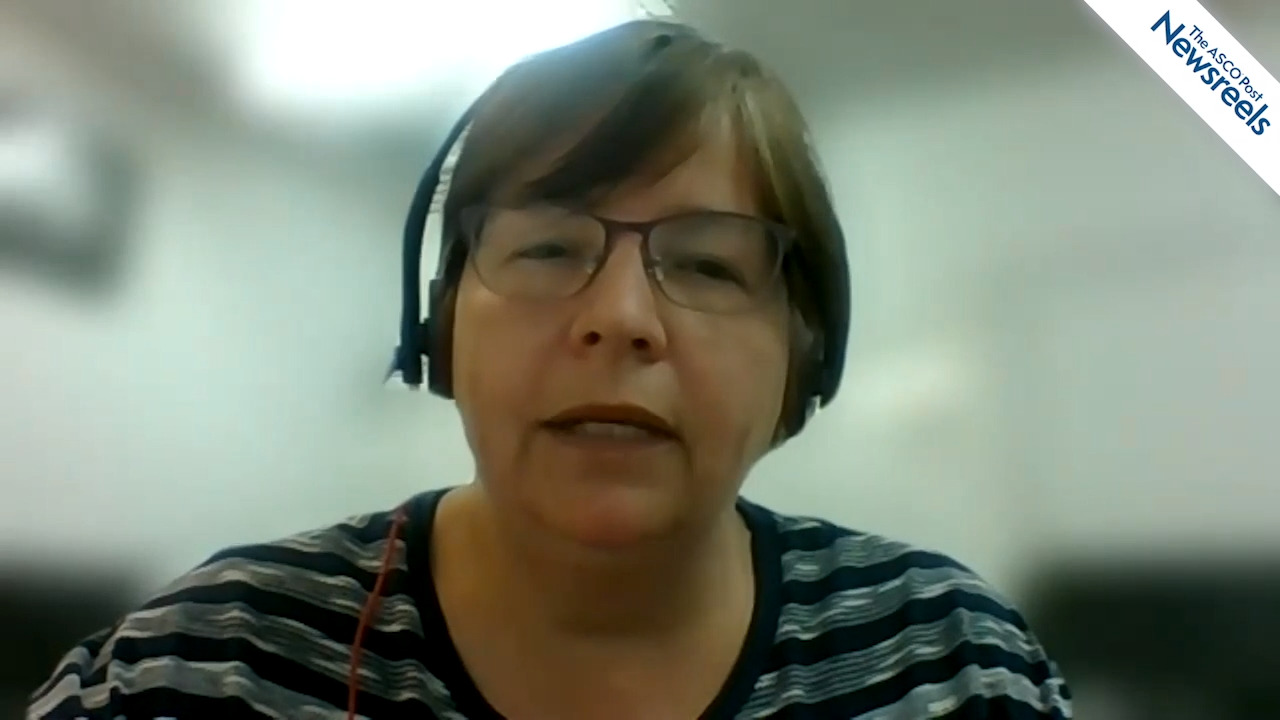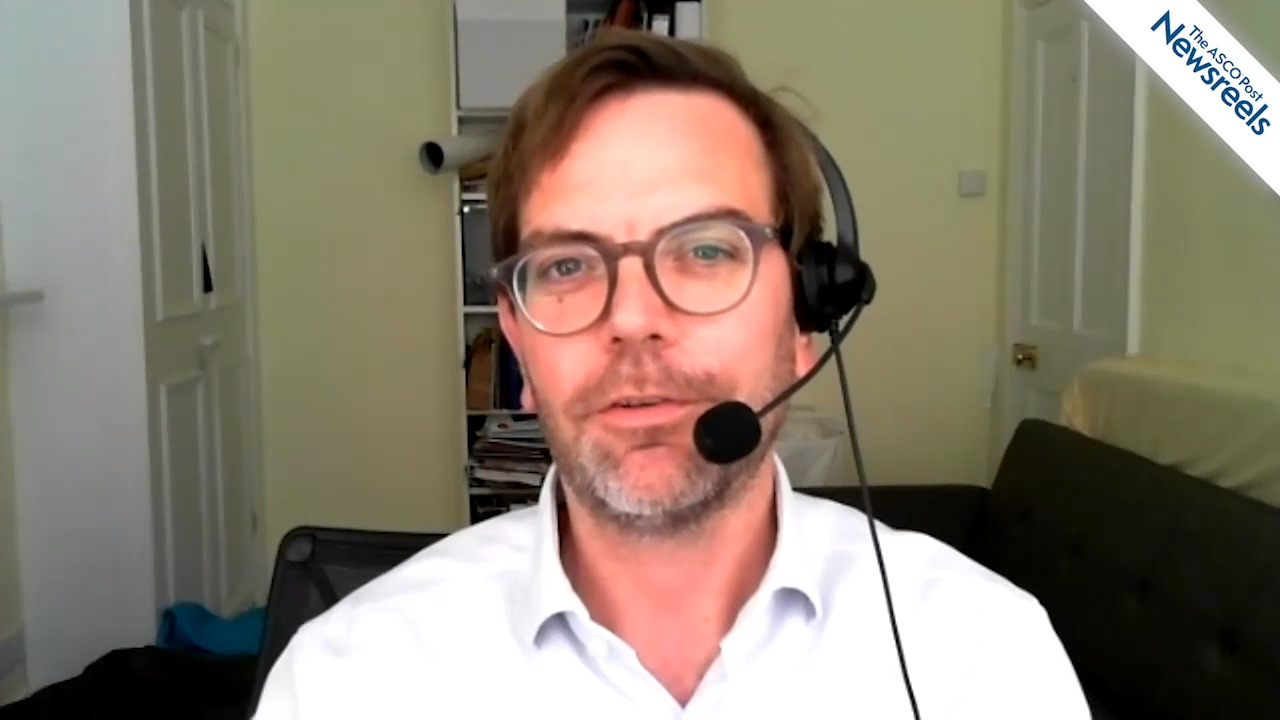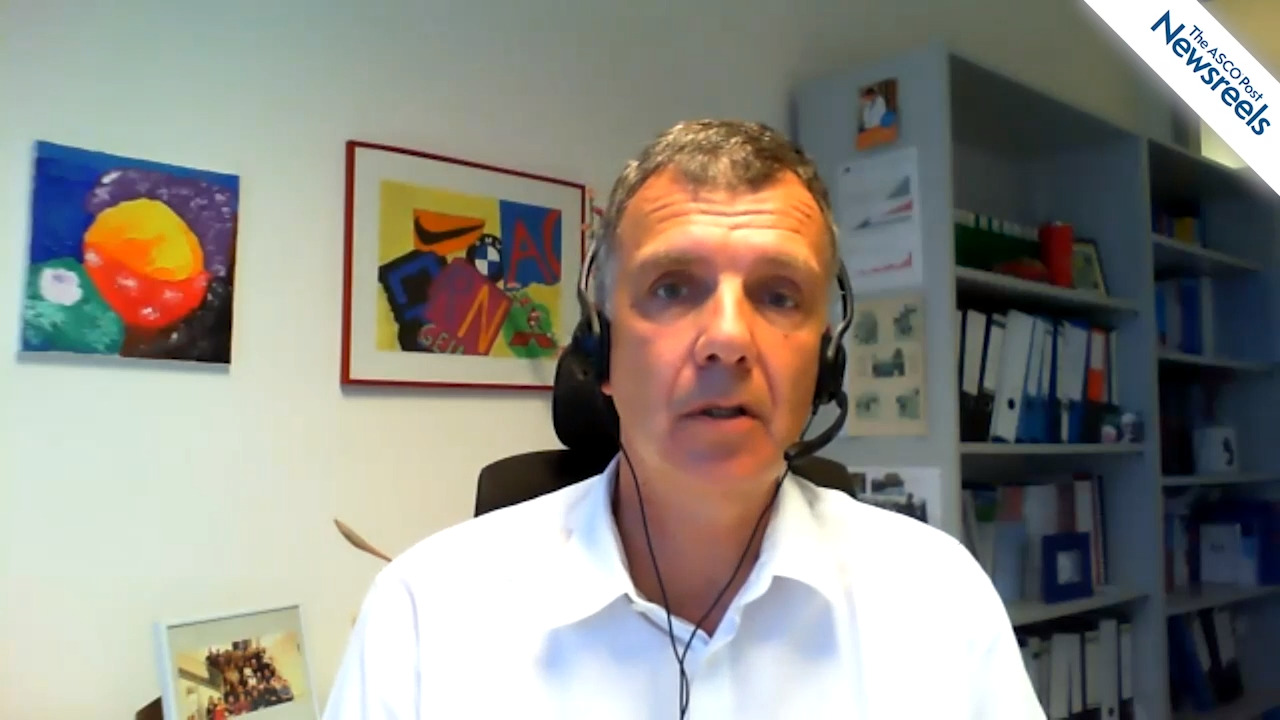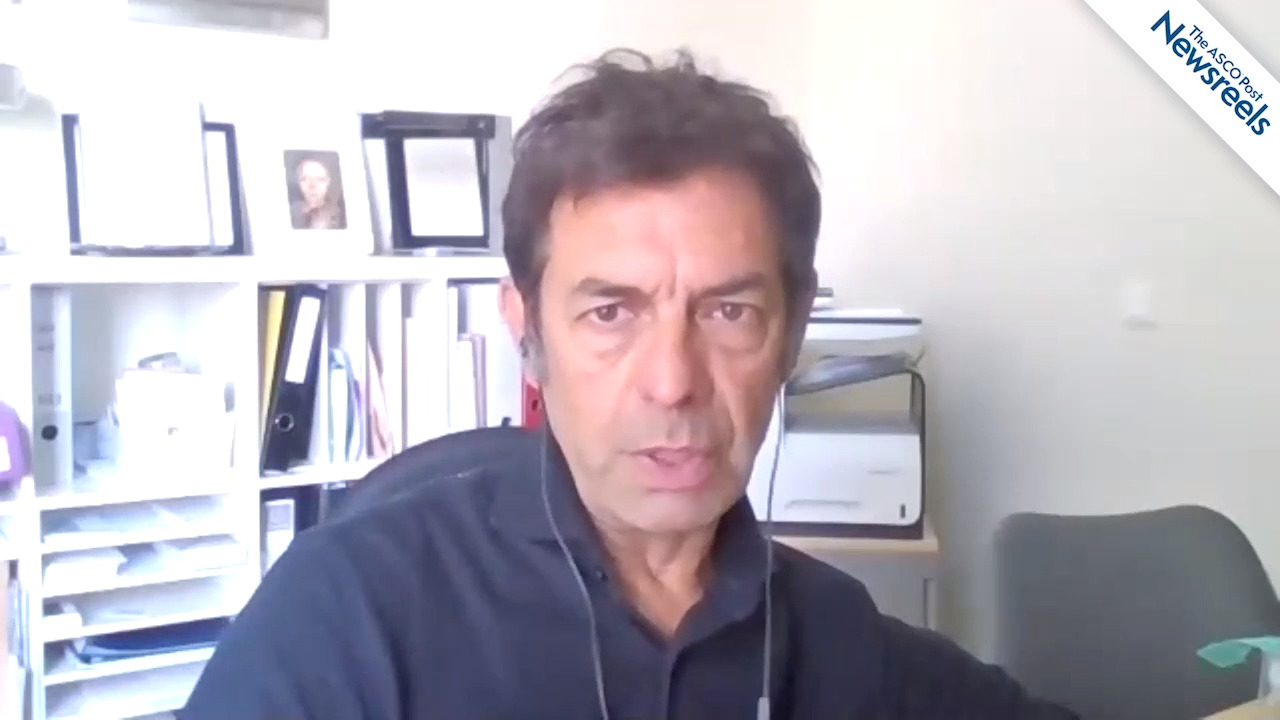Related Videos
Martin Hutchings, MD, PhD, on Hodgkin Lymphoma: Brentuximab Vedotin With Chemotherapy
Martin Hutchings, MD, PhD, of Copenhagen University Hospital, discusses a 5-year update of the phase III ECHELON-1 study, which suggested brentuximab vedotin plus doxorubicin, vinblastine, and dacarbazine benefits patients with previously untreated stage III or IV classical Hodgkin lymphoma (Abstract S205).
Claire Harrison, MD, DM, on Myelofibrosis: Fedratinib as First-Line Therapy After Prior Ruxolitinib
Claire Harrison, MD, of Guy’s and St. Thomas’ Hospital, discusses survival results from the JAKARTA and JAKARTA2 trials, which showed that fedratinib, an oral JAK2 inhibitor, significantly improved progression-free survival vs placebo as a first-line treatment for patients with myelofibrosis (Abstract S203).
Martin Kaiser, MD, on Myeloma and Plasma Cell Leukemia: Transplantation Plus Daratumumab/CVRD Therapy
Martin Kaiser, MD, of The Institute of Cancer Research and Royal Marsden Hospital, discusses findings from the UK OPTIMUM/MUKNINE trial on the depth of response and minimal residual disease status in patients with ultra-high–risk newly diagnosed multiple myeloma and plasma cell leukemia who were treated with augmented autologous transplant and daratumumab plus cyclophosphamide, bortezomib, lenalidomide, and dexamethasone (Abstract S181).
Martin H. Dreyling, MD, PhD, on Follicular Lymphoma: Safety and Efficacy of Tisagenlecleucel
Martin H. Dreyling, MD, PhD, of University Hospital Munich Grosshadern Klinikum, discusses phase II results from the ELARA trial, which suggests tisagenlecleucel may be a promising immunotherapy for adults with relapsed or refractory follicular lymphoma (Abstract S210).
Philippe Moreau, MD, on Newly Diagnosed Multiple Myeloma: Daratumumab Maintenance vs Observation
Philippe Moreau, MD, of University Hospital Hôtel-Dieu, discusses findings from the CASSIOPEIA trial, Part 1, on daratumumab maintenance vs observation in patients with newly diagnosed multiple myeloma who have been treated with bortezomib, thalidomide, and dexamethasone, with or without daratumumab, and autologous stem cell transplantation (Abstract S180).
